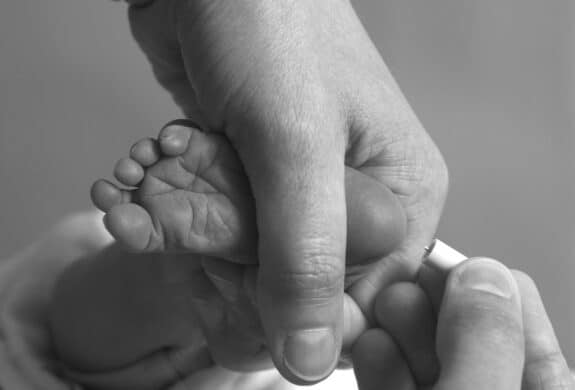In a quiet but potentially devastating move, the U.S. Department of Health and Human Services (HHS) recently dissolved the Advisory Committee on Heritable Disorders in Newborns and Children — a body that, for the past 15 years, has played an important role in protecting children’s health from birth.
At first glance, the decision may seem like bureaucratic restructuring. But for families across the country, it could have serious consequences: the loss of a key safeguard designed to catch rare, life-altering, and often fatal genetic diseases before symptoms appear.
Every year, routine newborn screenings identify about 14,000 babies with serious medical conditions that can be treated more effectively when caught early. These include disorders like cystic fibrosis, sickle cell disease, and Pompe disease — conditions that, if undetected, can lead to irreversible damage or death.
The earlier these diseases are diagnosed, the better the outcome. Some therapies are only effective if begun before symptoms start, during a window when babies appear completely healthy. Screening at birth gives families the best possible chance to seek lifesaving treatments and interventions.
As rare as some of these conditions are individually, together they affect 15 million children in the U.S., most with genetic causes.
The now-disbanded advisory committee was responsible for reviewing the latest science and recommending which conditions should be included in the Recommended Uniform Screening Panel (RUSP) — a federal guideline that most states follow when designing their newborn screening programs. This ensured a level of national consistency, offering protection to babies regardless of where they were born.
With the committee gone, important updates to the newborn screening list are now stalled indefinitely. Most urgently, the committee had been preparing to vote on adding two devastating conditions to the RUSP: metachromatic leukodystrophy (MLD) and Duchenne muscular dystrophy (DMD).
Both are severe genetic diseases that may initially leave babies looking perfectly healthy, only for symptoms to appear months or years later — after irreversible damage has already been done. Without screening, these children risk missing the critical window when new gene therapies, approved by the FDA in 2023 and 2024, could dramatically improve their quality of life or survival.
Currently, only a few states screen for these disorders:
- Only Illinois and New York test newborns for MLD.
- Only Minnesota and Ohio screen for DMD.
Without federal guidance, it’s unlikely that other states will move quickly to add these life-threatening conditions to their panels — meaning that countless children could go undiagnosed until it’s too late for effective treatment.
Eliminating the advisory committee threatens to widen existing gaps in children’s health outcomes across the U.S. Wealthier or more progressive states may continue expanding their screening programs. Others may lack the political will, funding, or technical knowledge to do so without federal leadership.
The result? A baby’s chance of early diagnosis — and a healthier life — could become a lottery based on geography rather than medical need.
The Department of Health and Human Services has stated that the move aligns with a 2019 executive order aimed at reducing the size of the federal government. But public health experts argue that shrinking the infrastructure that protects newborns is a dangerous cost-cutting measure.
“Newborn screening is one of the most effective public health interventions we have,” said Dr. Shawn McCandless, a former committee member and head of genetics and metabolism at Children’s Hospital Colorado. “We can’t afford to let that progress stall.”
With no clear replacement structure announced, advocates and medical leaders are calling for urgent action to reinstate or replace the committee — before more children’s futures are put at risk.
Every baby deserves the best possible start in life. Screening for serious genetic diseases at birth isn’t just good public health policy — it’s a moral obligation.
Related Articles:







